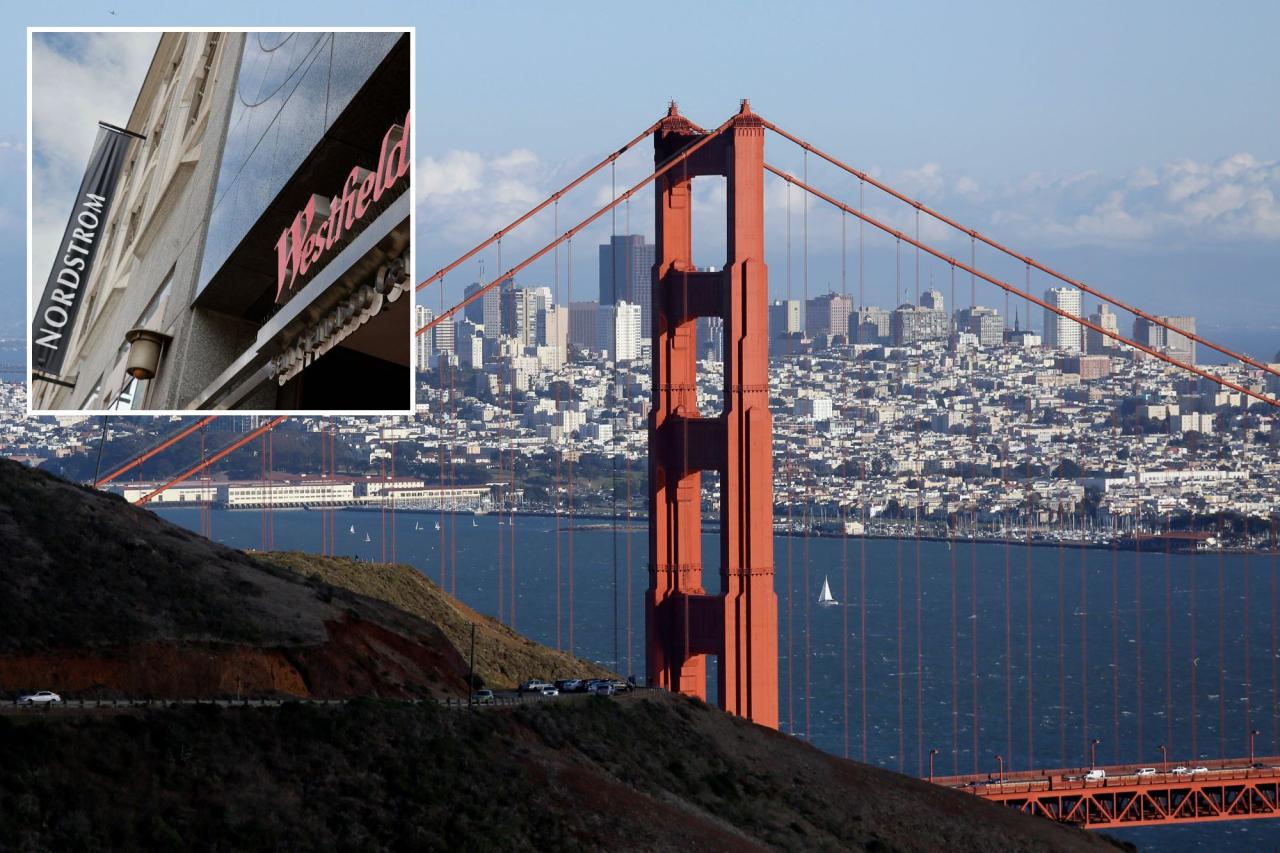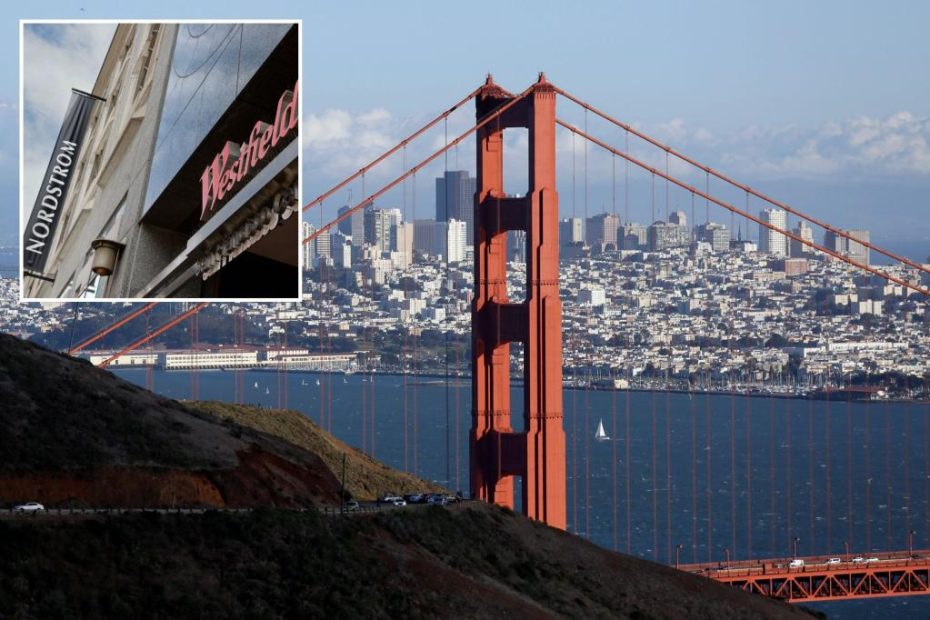San Francisco takes big hit as mall owner Westfield flees
Unibail-Rodamco-Westfield, the owner of one of San Francisco’s largest shopping centers, announced on Monday that it will hand over its Westfield San Francisco mall to lenders. This comes after the Hilton San Francisco Union Square and Parc 55 hotels announced that they have ceased making payments towards a $725 million mortgage last week. The decision of Unibail-Rodamco-Westfield is due to declining sales, occupancy, and foot traffic. San Francisco, once a thriving tech hub, has been hit hard by the pandemic with office buildings lying empty as more people continue to work from home. Additionally, major layoffs by tech companies have also compounded the issue. The rising interest rate environment has made it more expensive for companies to refinance their outstanding debt on these buildings, leading to loan payment cancellations or transfers of properties back to lenders.
The potential for difficulties from commercial real estate to flow through to banks is becoming a big worry for investors and regulators. “Westfield’s move shows they see risk in the city losing critical mass and is in anticipation of a long period of suffering for downtown San Francisco,” said Thomas LaSalvia, Moody’s Analytics Head of Commercial Real Estate Economics. “We agree there is trouble ahead but are more optimistic that after a couple of years, occupancy rates and foot traffic will bounce back in a city that is a cultural destination and still has critical mass in high skilled labor working in the life sciences, biotech, and tech sector.”
Despite San Francisco’s struggles, mall owners like Unibail-Rodamco-Westfield are still focusing on their best properties. “The best malls are still doing well. Westfield Century City is full, right?” said Warren Wachsberger, CEO of Aecom Capital, a real estate investor. “But if you go out to some of these older malls, they’re zombies. So it’s this dichotomy, and that’s why you see the big mall companies shifting their strategy, saying we’re going to focus on our best stuff, get rid of our worst stuff.”
Westfield San Francisco’s foot traffic decreased from 9.7 million visits in 2019 to 5.6 million visits last year, a 43% drop at a time when its US Flagship portfolio saw a 98% recovery. Sales in December 2022 fell to $298 million from $455 million in 2019, while occupancy levels have dropped to 55% after popular brands, such as apparel retailers Nordstrom and Gap-owned Banana Republic, announced store closures due to difficulty in operations.
FAQs:
1. Why is Unibail-Rodamco-Westfield handing over its Westfield San Francisco mall to lenders?
A: Unibail-Rodamco-Westfield is handing over its Westfield San Francisco mall to lenders due to declining sales, occupancy, and foot traffic.
2. Why has San Francisco been hit hard by the pandemic?
A: San Francisco has been hit hard by the pandemic as more people continue to work from home, causing office buildings to lie empty. Additionally, major layoffs by tech companies have also compounded the issue.
3. What is the potential worry for investors and regulators from commercial real estate difficulties?
A: The potential worry for investors and regulators from commercial real estate difficulties is that it could flow through to banks.
4. Why are mall owners like Unibail-Rodamco-Westfield focusing on their best properties?
A: Mall owners like Unibail-Rodamco-Westfield are focusing on their best properties to get rid of their worst ones and shift their strategy towards their best stuff.

Westfield’s departure deals a major blow to San Francisco’s mall scene.
San Francisco is facing more economic challenges as one of its largest shopping centers changed hands. Unibail-Rodamco-Westfield announced on Monday that it will hand over the Westfield San Francisco shopping mall to lenders after 20 years, which was driven by declining sales, foot traffic, and occupancy. This move followed Park Hotels & Resorts’ statement last week that it had stopped payments on a $725m mortgage associated with its Hilton San Francisco Union Square and Parc 55 hotels. San Francisco has been heavily impacted by the pandemic, with empty office buildings and major tech layoffs, which have made it more difficult for companies to refinance debt. The rising US interest rate environment has only added to the problem. The potential risk from commercial real estate, which could have a ripple effect on banks, is a growing concern for investors and regulators. On a more optimistic note, Thomas LaSalvia, Moody’s Analytics Head of Commercial Real Estate Economics, said that while the problems are expected to continue over the next few years, occupancy rates and foot traffic could return in the long run, given San Francisco’s status as a cultural destination and significant talent pool in the life sciences, biotech, and tech sectors.
